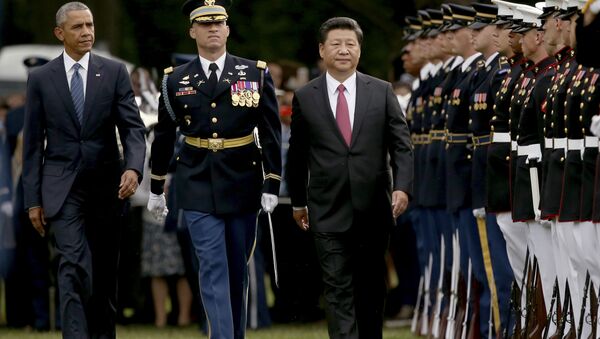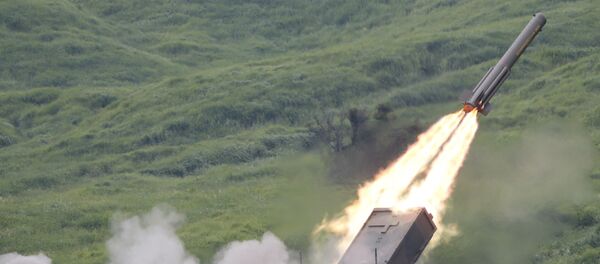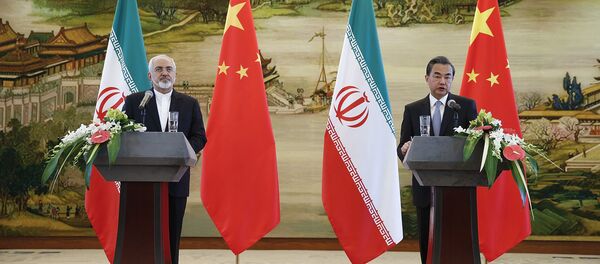Amid increased tensions between China and the US over land disputes in the South China Sea, new research from the Center for Strategic and International Studies (CSIS), has called for Washington to bulk up its military fleet in the region and stand up to what it sees as aggressive territorial moves being carried out by Beijing.
Cordesman on China’s growing military influence in Asia: https://t.co/gcYH0m6Qce pic.twitter.com/W6hBTEaObB
— CSIS (@CSIS) January 19, 2016
In order to stand up to China, the CSIS has recommended that the US deploy more nuclear submarines and long-range missiles to the region.
"Chinese and North Korean actions are routinely challenging the credibility of US security commitments, and at the current rate of US capability development, the balance of military power in the region is shifting against the United States […] Robust funding is needed to implement the rebalance."
The report was also critical of the Obama administration's handling of its "pivot" to Asia, arguing that it hasn't so far resulted in a renewing of alliances, but an increase in tension between the US and its allies — principally Japan — against China.
Asia-Pacific Rebalance: assessment of #USA #military capabilities, presence & partnerships | https://t.co/UprIlScRY9 pic.twitter.com/OjqgUVDhob
— ASEAN Strategic (@aseanstrategic) January 20, 2016
The report, commissioned by the US Department of Defense on the request of Congress, is likely to spark criticism from Republicans, who have accused president Obama of weak leadership in regards to international issues.
Concerns Over Think Tank Funding, Bias
However, given the number of think tanks in recent times and their fight for funding, many have questioned the research and objectiveness of certain researchers, with accusations that many are pushing a pre-existing agenda.
The authors of the recent report, the CSIS, are among a number of influential Washington think tanks to have received funding or aid money from corporate entities and foreign governments, leading to questions about the objectivity of reports and research.
Given the competition for and strain on funding, critics have argued that think tanks who receive funding from corporate or foreign sources would be less likely to produce results that conflict with the objectives of those who fund them.
Despite being highly respected by many, the CSIS has had a long history of Japanese funding and has been embroiled in foreign funding scandals in the past.
In 1990, it was revealed that CSIS consulted with Japanese car giant Toyota on who to appoint to the chair of the think tank's Japan Studies Institute, which came at a time of bitter trade disputes between Japan and the US.
This was followed up in a New York Times report in 2014, which revealed that CSIS received US$1.1 million from the Japan External Trade Organization (JETRO), an arm of the government, to help promote "research and consulting."
CSIS Conference Had 'Great' Anti-China Bias
Some of the most forthright accusations of anti-China bias leveled against the CSIS came in 2014, when Chu Shulong, a professor of political science and international relations from Beijing-based Tsinghua University, accused an event run by the think tank of being "unreasonable" and "unfair" of its assessment of China's actions in the region.
"The simple fact is that tension in the South China Sea has become higher in the last three years since US adopted its pivot strategy, especially since Secretary [of State Hillary] Clinton's Hanoi speech in July 2010," Chu said, amid increased criticism from US officials over China's actions.
During the two-day CSIS conference in July 2014, Chu accused US officials of only making reference to the wrongdoings of China and neglecting similar developments by other countries.
Given the US protestations against Chinese land claims and the creation of man-made reefs in the South China Sea, Mr Chu told the conference that researchers had only paid criticism to Chinese developments, and not similar constructions from other countries.
"We never see here the picture of construction by others, so this is great bias, unreasonable and unfair treatment that China cannot accept," he said.




